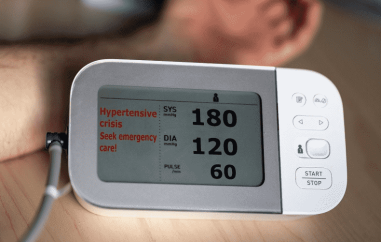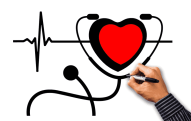High Blood Pressure: Understanding the Silent Killer Behind Stroke Risk
 In Germany, approximately 270,000 individuals experience a stroke annually, making it the nation's third leading cause of death. For those affected and their families, a stroke can mark a profound turning point in life. German Stroke Aid emphasizes that a staggering 70 percent of strokes are preventable, with lifestyle factors playing a significant role. Chief among these is high blood pressure, the foremost risk factor for strokes.
In Germany, approximately 270,000 individuals experience a stroke annually, making it the nation's third leading cause of death. For those affected and their families, a stroke can mark a profound turning point in life. German Stroke Aid emphasizes that a staggering 70 percent of strokes are preventable, with lifestyle factors playing a significant role. Chief among these is high blood pressure, the foremost risk factor for strokes.
According to Doctor Katharina Abbing, who recently discussed the issue on WDR, high blood pressure significantly elevates the risk of stroke. She conducted impromptu blood pressure checks on passersby, revealing that nearly all participants displayed elevated blood pressure levels. While this proportion may not reflect the entire population, statistics indicate that almost one in three Germans grapples with high blood pressure. Alarmingly, this condition amplifies the risk of stroke by six to eight times.
The mechanism behind this heightened risk lies in the potential consequences of untreated high blood pressure. Arterial calcification, or arteriosclerosis, can occur due to prolonged hypertension. When arteries leading to the brain become calcified, they fail to adequately supply blood to this vital organ. Additionally, calcifications may produce blood clots that obstruct cerebral blood flow, a scenario elaborated by stroke specialists from East Westphalia-Lippe. Furthermore, untreated hypertension can lead to cerebral hemorrhage, further compounding the risk of stroke.
A multitude of factors can contribute to high blood pressure, including lifestyle choices and internal conditions: o Lifestyle factors: Obesity, excessive salt consumption, inadequate fruit and vegetable intake, excessive alcohol consumption, sedentary lifestyle, stress, smoking, and certain medications. o Internal factors: Genetic predisposition, sleep apnea, kidney disorders, renal circulation issues, vascular anomalies, and hormonal imbalances.
German Stroke Aid underscores the importance of adopting healthier lifestyles, even with mildly elevated blood pressure readings. Lifestyle modifications have the potential to normalize blood pressure levels in some cases and should complement medication-based therapy. This involves prioritizing regular physical activity, maintaining a balanced diet, managing weight, quitting smoking, moderating alcohol consumption, and regularly monitoring blood pressure and pulse rates.
Beyond high blood pressure, several other factors contribute significantly to stroke risk, according to the Interstroke study referenced by medical professionals: o Abdominal obesity (26.5 percent) o Sedentary lifestyle (28.5 percent) o Smoking (18.9 percent) o Dietary imbalances (18.8 percent)
These findings underscore the importance of proactive measures in mitigating stroke risk. By addressing modifiable risk factors such as high blood pressure through lifestyle changes and medical intervention, individuals can significantly reduce their susceptibility to strokes, enhancing both longevity and quality of life.



































